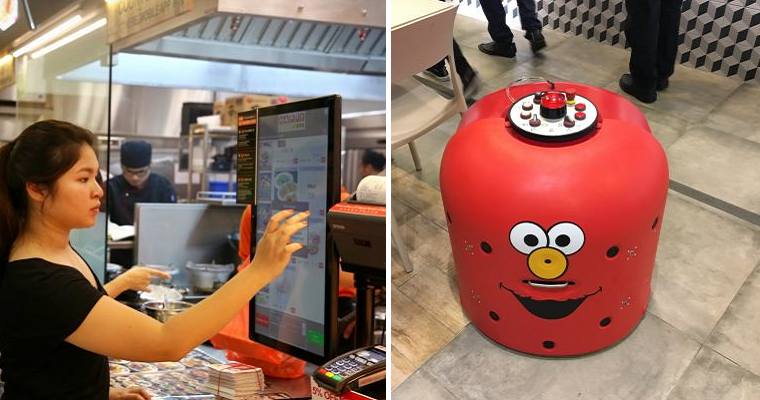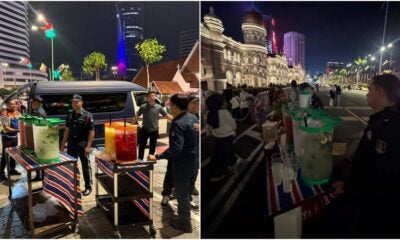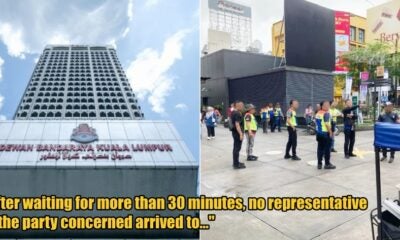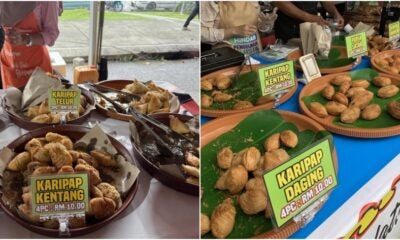The future has arrived, as more and more processes get automated or allocated to robots and systems. Our neighbouring country, Singapore for instance, has just jumped on the robot bandwagon, with the launch of two new coffee shops in Tampines and Choa Chu Kang that heavily rely on technology to operate.
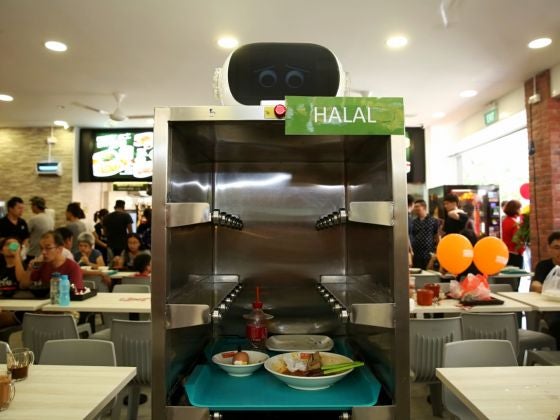
Source: today online
These two ‘productive’ coffee shops are the first manpower-lean shops in Singapore, with three more similar eateries to be opened soon in Bukit Batok, Punggol and Yishun soon.
The new coffee shops are FoodTastic in Choa Chu Kang that is operated by Chang Cheng, and Happy Hawkers in Tampines that’s managed by Koufu.
Here are some of the new technologies that each coffee shop has adopted:
Happy Hawkers
1. Tray-return robots: one for halal and one for non-halal, which automatically cart the trays over to the washing area once it is full
2. Self-service kiosks. These kiosks are available at every stall but you can order food from other stalls as well
3. Mobile app. So customers can order food from the stalls right from their mobile phones.
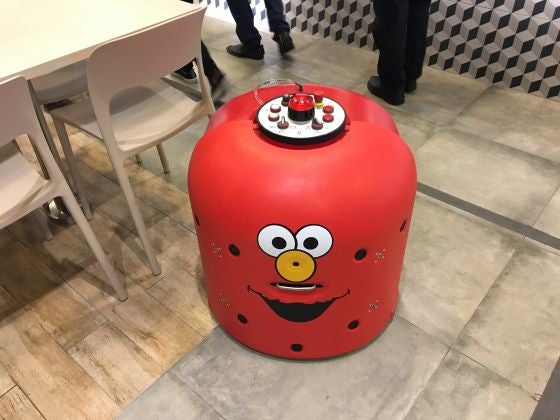
Source: today online
FoodTastic
1. A cute little floor-cleaning robot that’ll clean up messy spills and keep the area neat
2 An automated dish-sorting robot to organise dishes for easier washing up
3. Centralised self-service kiosks. This enables customers to place an order once they enter the coffee shop and quickly pick a place to sit while they wait for their order number to be announced
4. Mobile app. Similar to Happy Hawkers, customers can download the app and order once they’re seated inside.
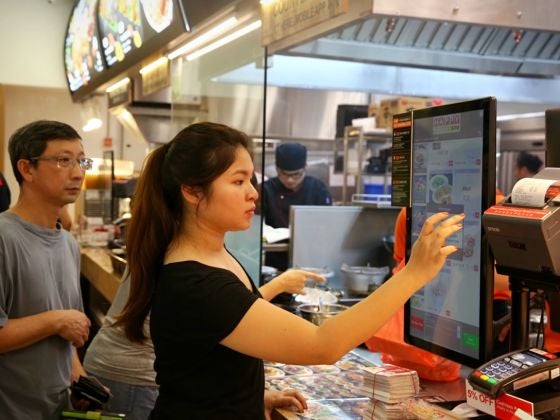
Source: today online
Best of all, both coffee shops accept payments by cash as well as credit and debit cards. The technology used in both shops means that diners do not need to stand in line to wait for their food and can pick it up when their order number is announced. Cool or what?
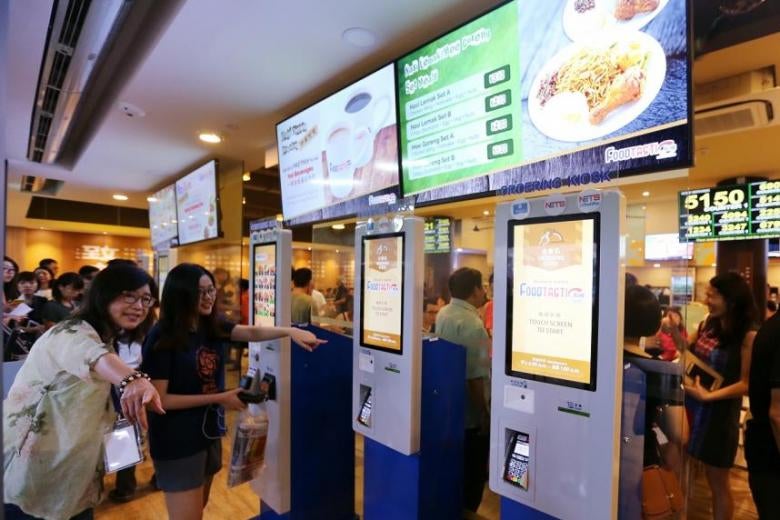
Source: tnp
According to Today, Spring Singapore chief executive Poon Hong Yuen said, “Coffee shop operators would have to revamp the traditional business model and use technology to improve operations. The transformation of coffee shops would not only ensure sustainability, but also improve the working conditions of staff.”
The move towards this new productive model is imperative, as the tightening labour market and changing job aspirations among locals have lead to coffee shops now employing over 20,000 workers, or 13 per cent of the workforce.
Environment and Water Resources Minister, Masagos Zulkifli said, “As we grow the food and beverage trade, some of the things we are very used to — people clearing our trays, people taking our orders — aren’t going to be available any more. Because the people who do these kinds of jobs are going to be nonexistent, or we’ve to bring in foreign workers to do that.”
Now, I wonder when will it be Malaysia’s turn to implement this cool technology into our coffee shops?
Also read: 8 Jobs That Will Soon Become Obsolete Because Machines Are Taking Over

